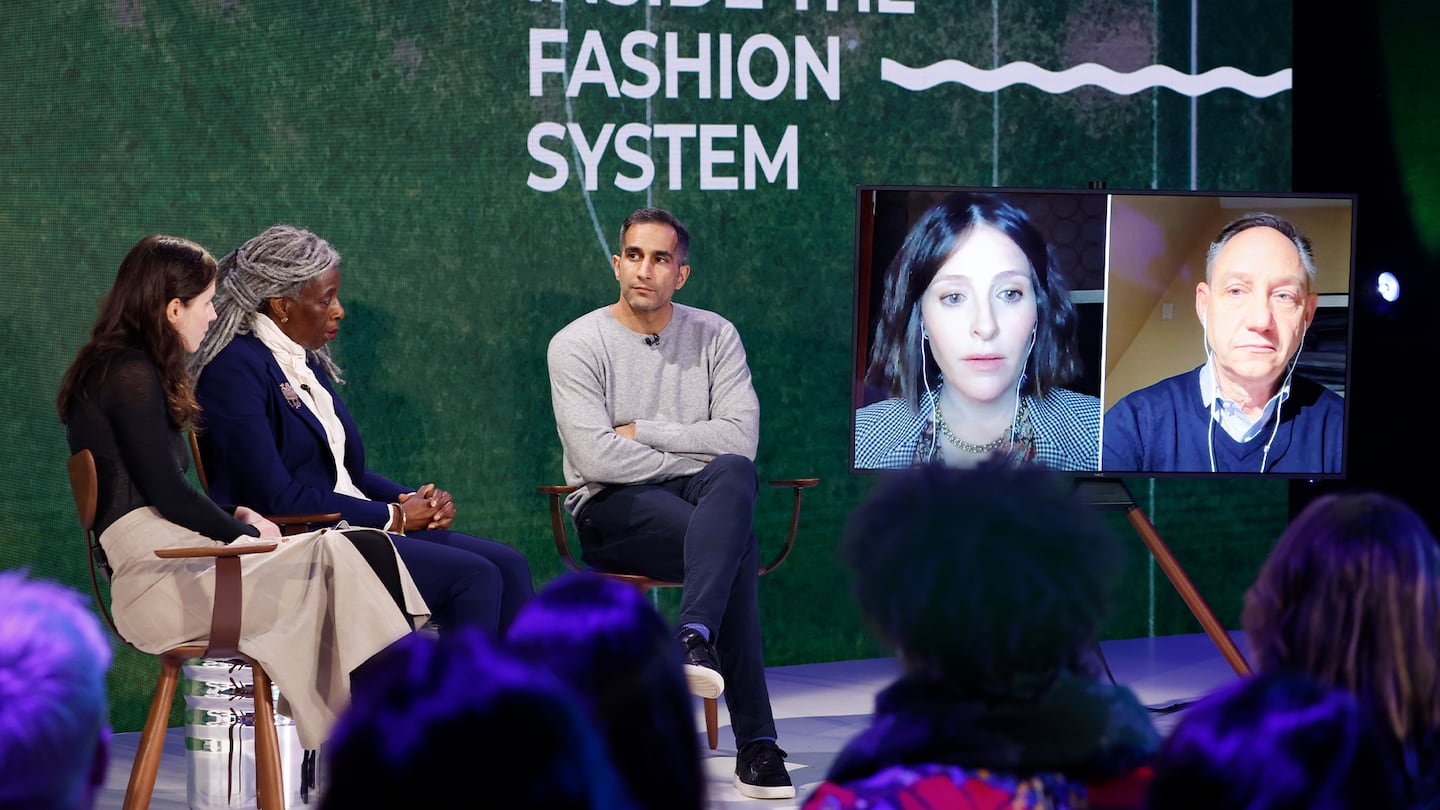
The Business of Fashion
Agenda-setting intelligence, analysis and advice for the global fashion community.

Agenda-setting intelligence, analysis and advice for the global fashion community.

Subscribe to the BoF Podcast here.
When it comes to sustainability, the fashion industry has long relied on self-regulation rather than external enforcement. But oftentimes, these self-defined targets create a “convenient fantasy,” Blackrock’s former chief investment officer of sustainable investing Tariq Fancy said in a talk at BoF VOICES 2022. This gives the appearance of positive movement, but not necessarily real progress. Indeed, activists like Fancy, as well as consumers and investors are calling for government regulators to intervene.
“Many companies are playing dirty,” he said. “It’s time we called in the refs.”
This week on The BoF Podcast, BoF’s chief sustainability correspondent Sarah Kent speaks with Fancy; Maxine Bédat, director of the New Standard Institute; Baroness Margaret Omolola Young, activist and a member of Britain’s House of Lords and Ken Pucker, former chief operating officer of Timberland to explore the role that regulation can play in creating a more sustainable fashion industry.
Traces of cotton from Xinjiang were found in nearly a fifth of samples from American and global retailers, highlighting the challenges of complying with a US law aimed at blocking imports that could be linked to forced labour in China.
The fashion industry continues to advance voluntary and unlikely solutions to its plastic problem. Only higher prices will flip the script, writes Kenneth P. Pucker.
The outerwear company is set to start selling wetsuits made in part by harvesting materials from old ones.
Companies like Hermès, Kering and LVMH say they have spent millions to ensure they are sourcing crocodile and snakeskin leathers responsibly. But critics say incidents like the recent smuggling conviction of designer Nancy Gonzalez show loopholes persist despite tightening controls.